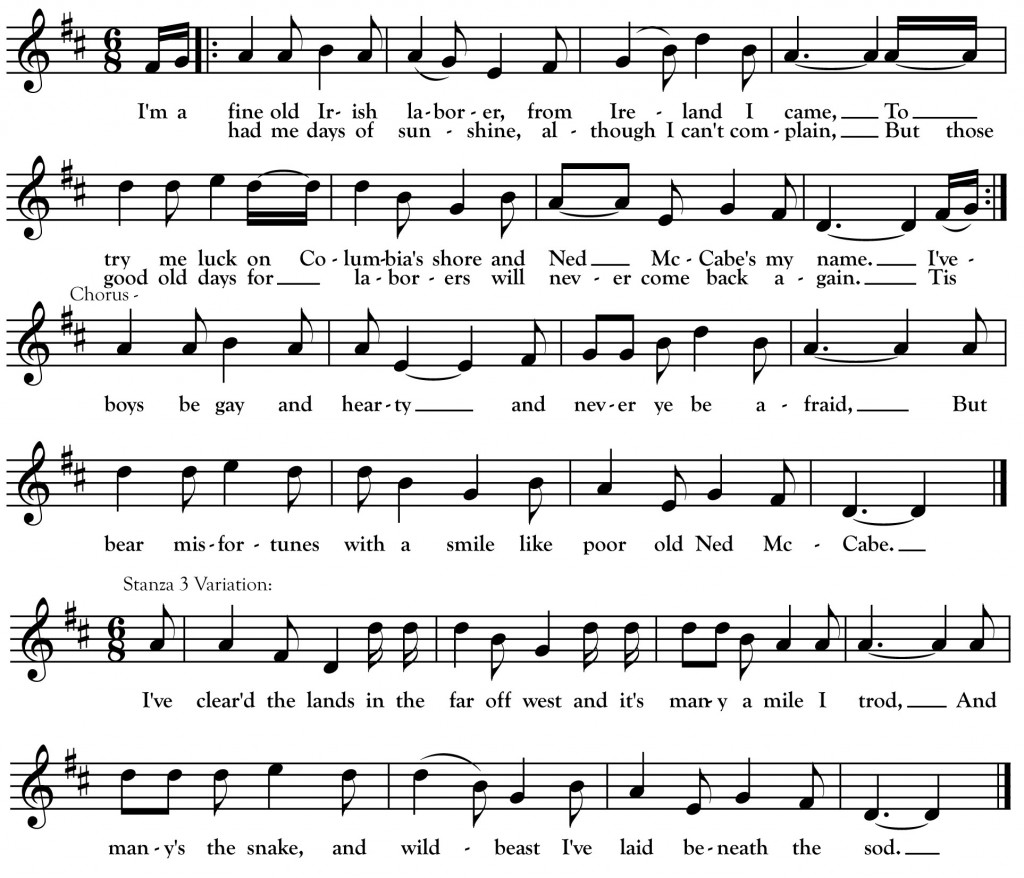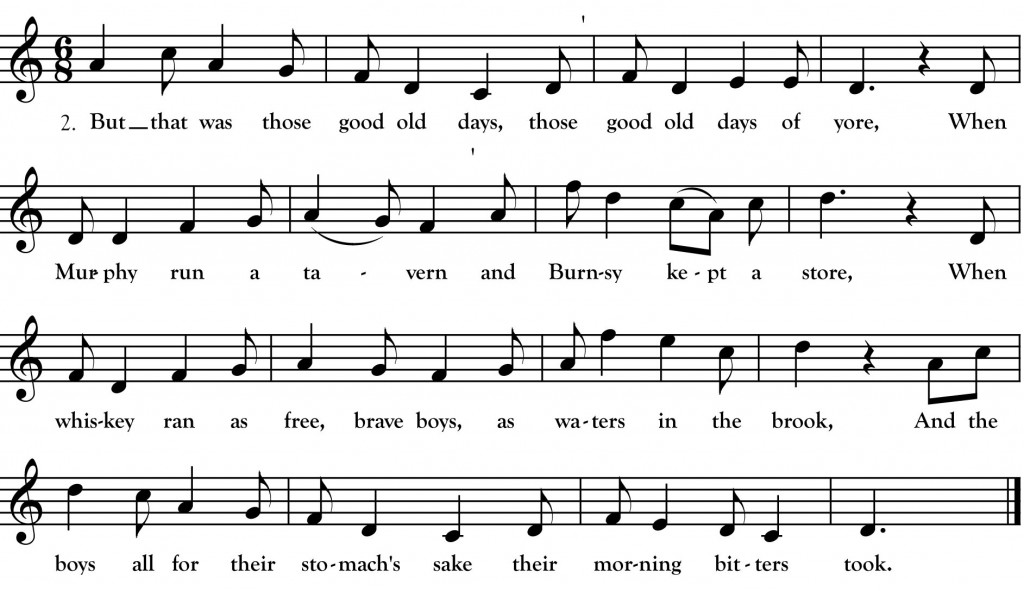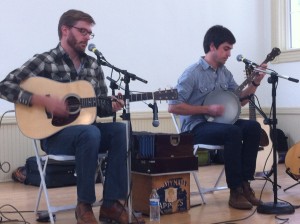Ned McCabe
I’m a fine old Irish laborer, from Ireland I came,
To try me luck on Columbia’s shore, and Ned McCabe’s my name.
I’ve had me days of sunshine, although I can’t complain,
But those good old days for laborers will never come back again.
Chorus:
’Tis boys, be gay and hearty, and never ye be afraid,
But bear misfortunes with a smile like poor old Ned McCabe
But when I landed in Quebec, I had nary a red at all,
I hired out to a contractor, boys, to work upon a canawl.
I’d eighty cents a day, me boys, and whiskey too had I,
But when I think of those good old days, it almost makes me cry. Chorus
*I’ve cleared the lands in the far-off west, and many a mile I’ve trod,
And many’s the snake, and wild beast, I’ve laid beneath the sod. Chorus
Now the winter time is coming on, and away down south I’ll go,
To secure myself a winter’s job away from frost and snow.
Old Canady being by favorite whenever there I went,
I could drink my twenty jiggers a day and never step off o’ the plank. Chorus
_________________________________________________________
Folk song collector Franz Rickaby made the above transcription of this very rare song from the singing of George Hankins (1849-1934) of Gordon, Wisconsin in the early 1920s. Earlier in his life, Hankins worked as a lumberjack and railroad man in Minnesota before making his home in Gordon, about 45 miles southeast of Duluth. Hankins told Rickaby that he learned the song when he first came to live in Wisconsin.
The song itself illustrates a familiar storyline for the first Irishmen to come to Minnesota and Wisconsin. It was common for Famine-era immigrants who sailed to Canada to find work as lumberjacks, railroad men, Great Lakes sailors or canal workers. Many of these men and their sons followed those jobs, or sometimes seasonal farm work, over the border into the US. So it was with many of the men who built Stillwater, Minnesota and other St. Croix Valley towns.
*I took some liberty with the words of this verse in what I published in the IMDA newsletter and in what I sing myself. The original as transcribed by Rickaby reads:
I’ve cleared the lands in the far-off west where no white man ever trod,
And many’s the snake, and red man too, I’ve laid beneath the sod.



